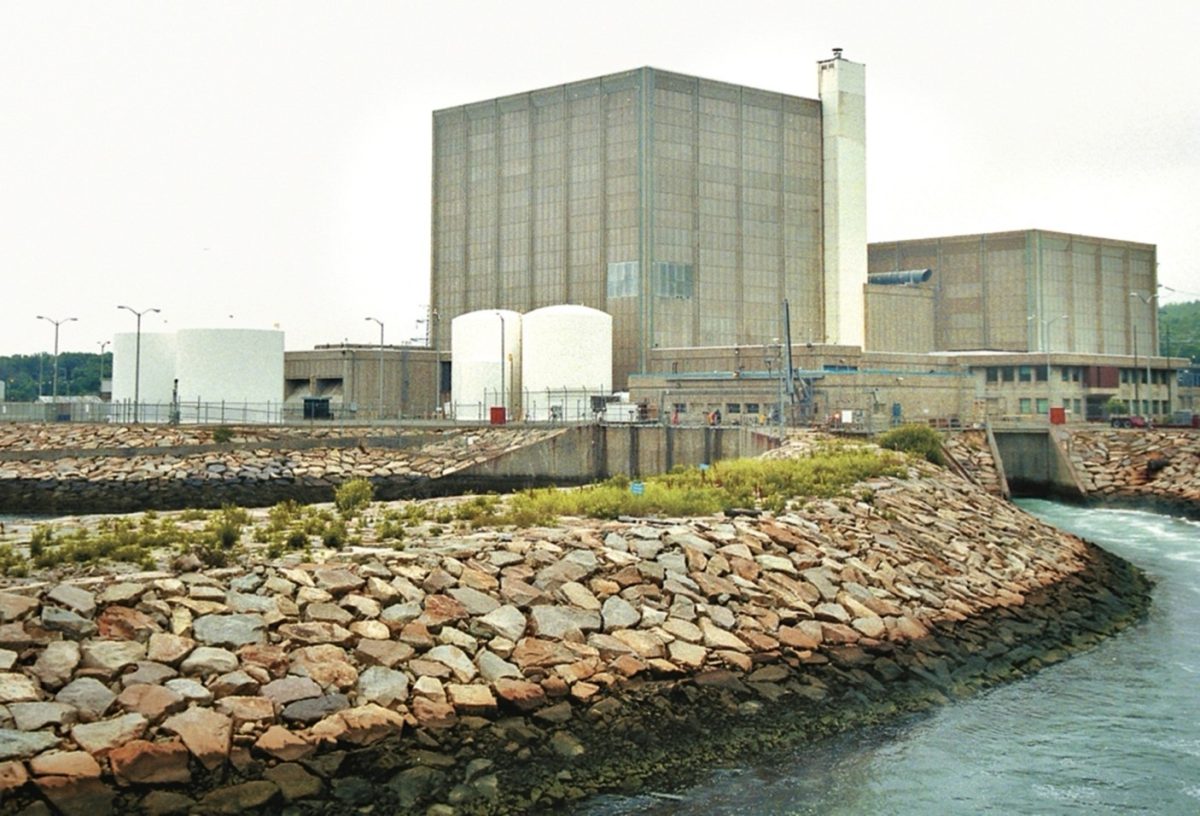A former Holtec worker at the shuttered Pilgrim nuclear power plant has filed suit against the company, alleging he was poisoned by radiation.
Adam Snyder, 41, a boilermaker from Ohio, also claims the company kept secret the dangerous conditions at the Manomet plant, which stopped generating power in 2019 and is being decommissioned by Holtec.
Snyder’s suit alleges that he became seriously ill because of Holtec’s discharge of “radioactive, hazardous, and toxic substances at the job site.”
He worked at the Plymouth nuclear power station for eight months in 2021, helping to remove fuel rods as part of the decommissioning process.
He became ill in his final weeks on the job and has yet to recover, according to the lawsuit filed Nov. 8 in US District Court in Boston. Without special medication, he has been unable to leave the house, according to a court document.
In the suit filed against four Holtec entities, including Holtec Pilgrim and Holtec Decommissioning International, Snyder alleges the company knew the plant was unsafe, but didn’t tell workers.
Holtec has “caused the release of radioactive, hazardous, and toxic substances into the jobsite located at the facility,” the suit alleges.
Holtec’s lawyers have denied the allegations and are asking US District Court judge Allison Burroughs to throw out Snyder’s suit. It’s unclear when Burroughs might act on the motion to dismiss.
Snyder studied at Massachusetts Maritime Academy, the University of Hawaii, and the Boilermakers Northeast Area Apprenticeship Program, according to his Facebook page.
In photos, Snyder looks like a bodybuilder. But since becoming ill, he has been steadily losing weight – 40 pounds as of late March, according to his lawyer, Andrew Abraham.
When he started working at Pilgrim, Snyder was assured by a supervisor that the work site was safe, the suit alleges, and workers did not need ventilators or protective gear.
But after several months, the suit says, Snyder began getting severely nauseous every few days.
After he left the job in December 2021, he became even more ill, “profusely” vomiting and chronically nauseous, the lawsuit says.
He was prescribed Ondansetron Hydrochloride, a drug used to prevent nausea and vomiting caused by radiation therapy or chemotherapy, the suit says.
“None of the defendants reached out to Mr. Snyder regarding the exposure, causing him to wait an excessively long time before getting checked and forcing him to endure symptoms without knowing where they stemmed from,” a court document says.
A co-worker also developed symptoms around the same time, a court document alleges, and had to have part of his tongue and esophagus removed.
Snyder says he didn’t know what was making him sick until he heard about a Nuclear Regulatory Commission inspection — one that found radioactive contamination and exposure.
An April 2022 NRC inspection report found that Holtec had failed to test all areas for potentially dangerous levels of radiation.
The company failed to get air samples at the top elevation of a dry well — which houses the reactor’s cooling system — though inspectors had previously found it “a high contamination” area, the suit says.
The inspector issued a “stop work” order because of “unanticipated general area contamination levels” but Holtec failed to implement the order, according to the lawsuit.
In late November 2022, NRC issued a report finding that said Holtec didn’t measure radiation levels in a posted critical area in 2020. As a result, “six contract workers received unplanned intakes of radioactive material.”
NRC inspectors found violations during several visits, but none was deemed a major safety problem.
In its motion to dismiss the case, Holtec’s lawyers argued that the suit — which was first filed in state court — was not permitted under the federal Price-Anderson Law, which prohibits states from regulating nuclear energy.
Abraham then refiled the lawsuit in federal court, alleging violations of U.S. law, as well as negligence and misrepresentation.
Holtec’s lawyers argued that the suit should still be dismissed because it fails to show that Snyder was exposed to radiation above legal limits, that any exposure caused his illness, or even that he has a “discrete bodily injury,” all required to pursue such a case, wrote the company’s lawyer, Brandon Arber,
Holtec’s lawyers also said Snyder offered no proof that the company had “actual knowledge of unsafe conditions” and withheld that information from workers.
His claim is “devoid of facts,” Holtec’s lawyers wrote, and he has made “no showing that he is plausibly entitled to relief.”
Snyder, who says he has incurred $50,000 in medical expenses and $343,000 in lost wages, is seeking unspecified damages, according to the lawsuit.
He is also looking for payment of legal fees and interest from the date he was first exposed to “toxic, hazardous or radioactive substances” released by Holtec.
Andrea Estes can be reached at andrea@plymouthindependent.org.

